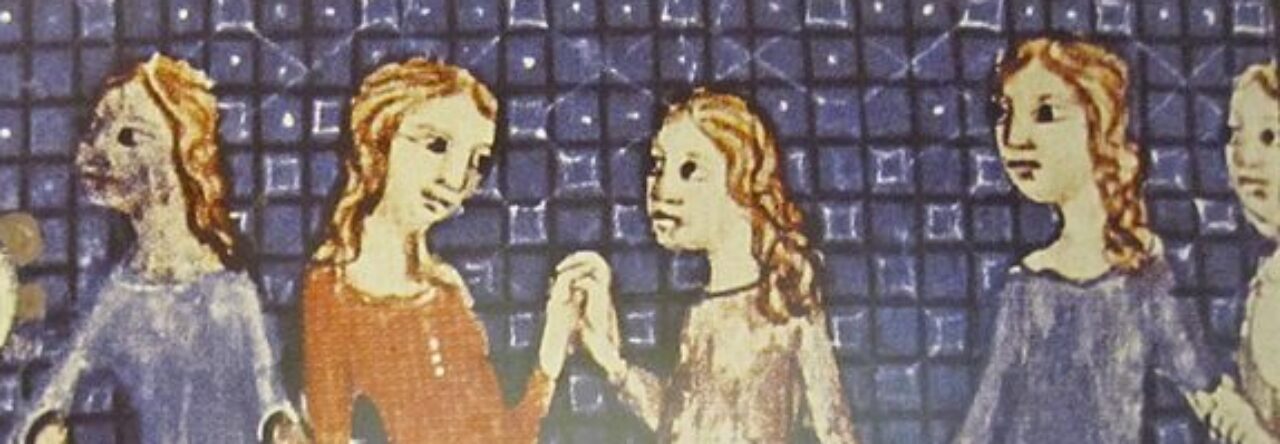Jews were a part of communities across medieval Europe, living and working among the dominant Christian society. Most lived in urban centres where they engaged in a variety of economic activities from moneylending to commerce to artisanal production. The rhythms of their lives were permeated with their Jewish faith which provided comfort and moral guidance but also bound the community together. As minorities, however, Jews faced moments of persecution through repressive legislation, violence, and exile. Over the course of the medieval period, numerous Jewish communities were expelled from the kingdoms where they had lived for hundreds of years.
Much like Christianity, Judaism was a decidedly patriarchal faith and women were subordinated in Jewish society. Prescriptive literature highlights such perspectives and emphasizes the role of women in the family as wives and mothers. But at the same time, it also notes the value of a wife able to assist her husband in business and provided space for women to engage in economic activities of her own. In today’s class, we’ll explore the gendered nature of such prescriptive literature and consider aspects of Jewish women’s lives including marriage and family. But we’ll also examine their engagement in one form of economic activity, moneylending, by considering the experiences of Jewish women living in late medieval Catalonia.
To Watch (online students only)
Video will be posted Tuesday afternoon.
Powerpoint:
#7-Jewish Women in medieval Europe
To Read
“Barcelona Jewish Court Documents”
Maimonides, The Book of Women
Sefer Hasidim on Women
All available:
To Do
Our readings today provide us with a window into both the prescriptive literature which governed Jewish women’s lives and the descriptive experiences that they had. The court documents come from the Jewish court in Barcelona known as the Bet Din and relate to an inheritance dispute. We also have a section from The Book of Women written by the great Rabbi Maimonides who lived in Spain. Finally, we are reading part of the Sefer Hasidim which deals with Jewish women and family life through ethical teachings.
In person students
For those signed up to lead discussion for this class, you are in charge of developing discussion questions. You can also create activities for the class to engage in as a means of exploring the assigned readings.
Online students
Questions will be posted in your chatboard channels as a means of starting discussion about the assigned readings. Students who are signed up to lead the online discussion are responsible for monitoring your classmates’ comments and responding to them to keep discussion going. If there are questions that arise which I can help with, don’t forget to tag me @dwl.
Online posts are due Thursday May 26th at midnight.
